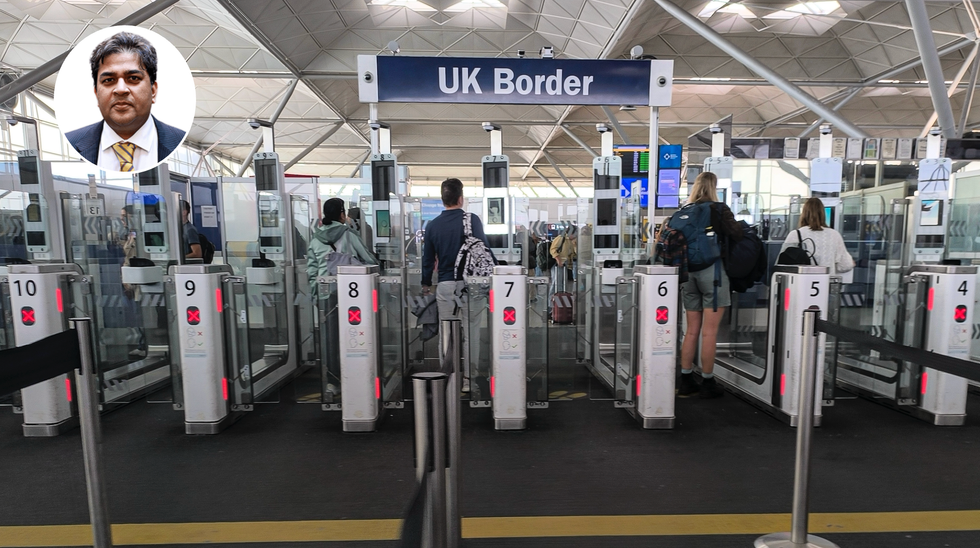If you had to design an economic death spiral, you would base it on the latest ONS figures - Shanker Singham
Britain will not simply “get a bit poorer” as a result, writes the CEO of Competere and former advisor to the UK Trade Secretary
Don't Miss
Most Read
Trending on GB News
If you wanted to design an economic death spiral for Britain, you’d start with the numbers in front of us. In 2024, roughly a quarter of a million people left the UK, close to a million arrived, and around ten million working‑age adults are not in work.
Official figures put 2024 immigration at about 948,000 and emigration at roughly 257,000 of Britons leaving in 2024.
On current projections, the population will hit about 72.5 million by the early 2030s, driven entirely by migration.
Meanwhile, we are wasting the people we already have. Around nine million working‑age adults are economically inactive, and another 1.8 million are unemployed – roughly ten million not working in any form.
Yet the political and business establishment insists that ever‑higher migration is “needed” to fill jobs. What we actually have is a system that finds it easier to import labour than to reform welfare, skills and taxes so that work really pays for those already here.
Tax is part of the story. The overall tax take is now about 39–40 per cent of GDP – the highest for decades and on course for record levels.
Threshold freezes quietly drag more nurses, engineers and small‑business owners into higher bands, while combined taxes on profits and dividends for many entrepreneurs sit well over 50 per cent.
Then Westminster acts surprised when mobile, productive people take their talents and families to lower‑tax, more predictable regimes.
But the bigger problem is our sclerotic, anti‑competitive regulatory state. Ask any small manufacturer, pub landlord or tech founder, and many will say red tape hurts more than the headline tax rate.
Surveys of British firms put regulation, compliance costs and customs rules among the top barriers to growth and exports.
Even the government now admits that slimming down regulators and simplifying rules could save businesses billions – a quiet confession that the current system throttles opportunity more than it protects the public.

If you had to design an economic death spiral, you would base it on the latest ONS figures - Shanker Singham
|Getty Images
Put bluntly: we are exporting talent and importing people who, through no fault of their own, are far less likely to be in high‑productivity work any time soon, while paying millions of our own citizens to sit outside the labour market. That mix is economically unsustainable and politically explosive.
The route out is not mysterious, just uncomfortable. Cut the marginal tax on work and enterprise. Slash and simplify regulation with one test: does it really protect people, or just paperwork and vested interests?
Turn welfare from long‑term parking into focused support back into work. And run an immigration system firmly in the national interest – under control, enforcing the rules, and clearly tilted towards those who will contribute and integrate quickly.
Carry on as we are and Britain will not simply “get a bit poorer”. We will entrench a high‑tax, low‑growth, low‑trust model that drives out wealth creators while expanding the payroll of the state and the welfare rolls.
That is the catastrophe our current numbers are pointing to – and it is still in our power to avoid it.
More From GB News










